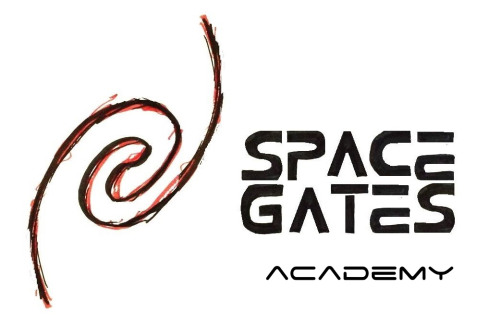SpaceGates Academy: Teaching science communication and outreach of Astronomy, Planetary and Space Science to Physics Students.
- 1Physics Department, National and Kapodistrian University of Athens, Athens, Greece (kmoutsour@phys.uoa.gr)
- 2Leiden University, Leiden, the Netherlands
- 3Stockholm Environment Institute, Department of Environment and Geography, University of York, York, UK
- 4Leibniz-Institut für Astrophysik Potsdam (AIP), Potsdam, Germany
- 5Office of Space Research and Technology, Academy of Athens, Athens, Greece
- 6History and Philosophy of Science Department, National and Kapodistrian University of Athens, Athens, Greece
- 7Mathematician, Stem Trainer, Athens, Greece
- 8The Press Project, Athens, Greece
- 9National Observatory of Athens, Athens, Greece
- 10Hellenic Amateur Astronomy Association, Athens, Greece
Science Communication is a practice that is increasingly gaining ground among the STEM sciences as a practice that needs to be approached with the same scientific and robust methods as the sciences it aims to communicate. It has the potential to reach a wide variety of large audiences and increase the visibility and apprehension of Astronomy and Planetary science. The 20th century has regrettably witnessed the rise of pseudo-scientific practices and a lack of confidence in science, scientists, and scientific practices. It is therefore now, more important than ever, to diffuse and separate science from un-scientific practices and inform the non-specialist public in a concise, clear, and most importantly, scientific way. It is equally important, for young researchers, like physics students, to develop the ability to evaluate the quality of the overwhelming volume of scientific information in order for them to distill and communicate that, but also communicate their own work and research in an approachable way.
To achieve this, the SpaceGates Team, an outreach team consisting of Physics Students with interest in Astronomy, Astrophysics and Space, decided to launch an ambitious initiative; the SpaceGates Academy. The Academy invited experts in different subjects with the aim to provide training on science communication to early career researchers (ECR) from undergraduate to PhD level. This training aimed to fill a gap in the core and optional academic curriculum that so far does not provide a course dedicated to the communication of science. The objective of the training was the development of communication skills of the participants with emphasis on Astronomy, Astrophysics and Space, and their application in a safe and scientifically robust environment. The Academy was delivered in the form of weekly, two-hour seminars organized by the SpaceGates team under the auspices of the Department of Astrophysics, Astronomy and Mechanics of the National and Kapodistrian University of Athens. This reflects the department's commitment to provide training for science communication.
Highly experienced outreach professionals, educators and science communicators voluntarily shared their experience and expertise with the learners participating over a period of 15weeks. The topics covered were: creative writing, storytelling, public speaking, science performance, science communication, scientific research writing and communicating it with the public, communicating planetary science through music, teaching Astronomy using digital tools, STEM education, organizing outreach activities etc. The learners had to deliver a written or verbal project, design and co-develop a team outreach activity. They also participated in team building activities at the beginning of each session and were asked to fill google-forms evaluation questionnaires for every session. From the planned 17 sessions, 13 were delivered in person, 2 were delivered virtually and the last 2, affected by COVID-19 were cancelled. As the post pandemic phase is now developing, we are currently exploring ways to organize virtual team outreach activities and maybe some social distance safe ones, to facilitate the conclusion of the Academy, as per its original plan.
SpaceGates Academy is a much needed, ambitious educational program that introduced the science of communication to the Greek ECR that participated in the program. This endeavor will be repeated next year and it is hoped that it will evolve in an established practice that covers both the needs of the learners but also the needs of the core and optional academic curriculum.

the Academy logo was printed on the coton book bags shared to the learners
How to cite: Moutsouroufi, K., Tsilia, S., Papadopoulos, A., Stratigou-Psarra, M., Michalopoulou, E., Kontogiannis, I., Dialynas, K., Petakos, D., Andrikopoulou, M., Poulis, K., Metallinou, F. A., and Daglis, I.: SpaceGates Academy: Teaching science communication and outreach of Astronomy, Planetary and Space Science to Physics Students. , Europlanet Science Congress 2020, online, 21 Sep–9 Oct 2020, EPSC2020-829, https://doi.org/10.5194/epsc2020-829, 2020.

